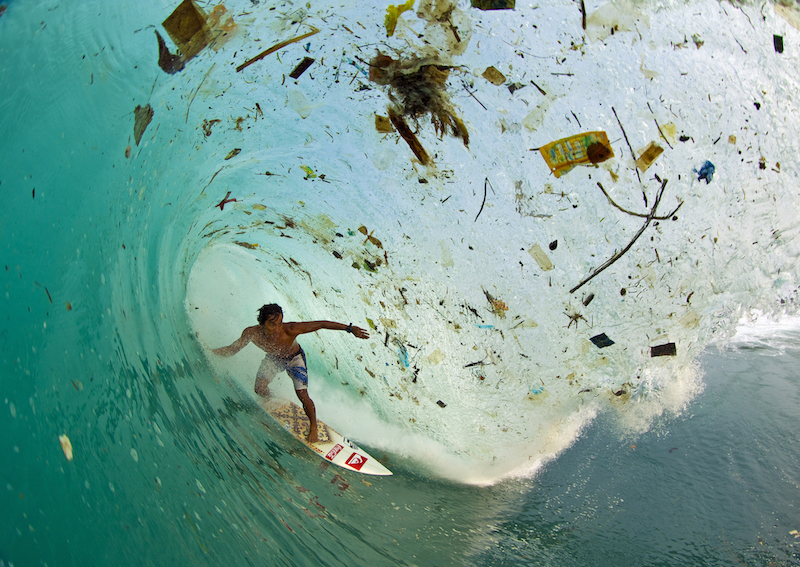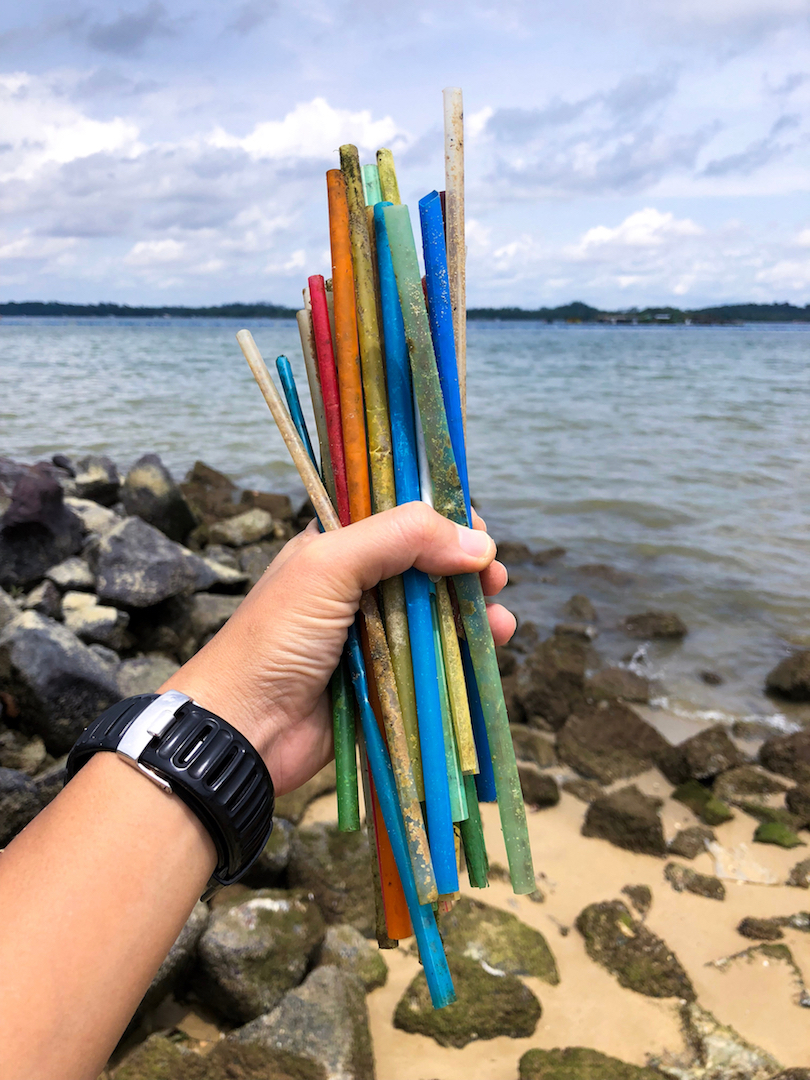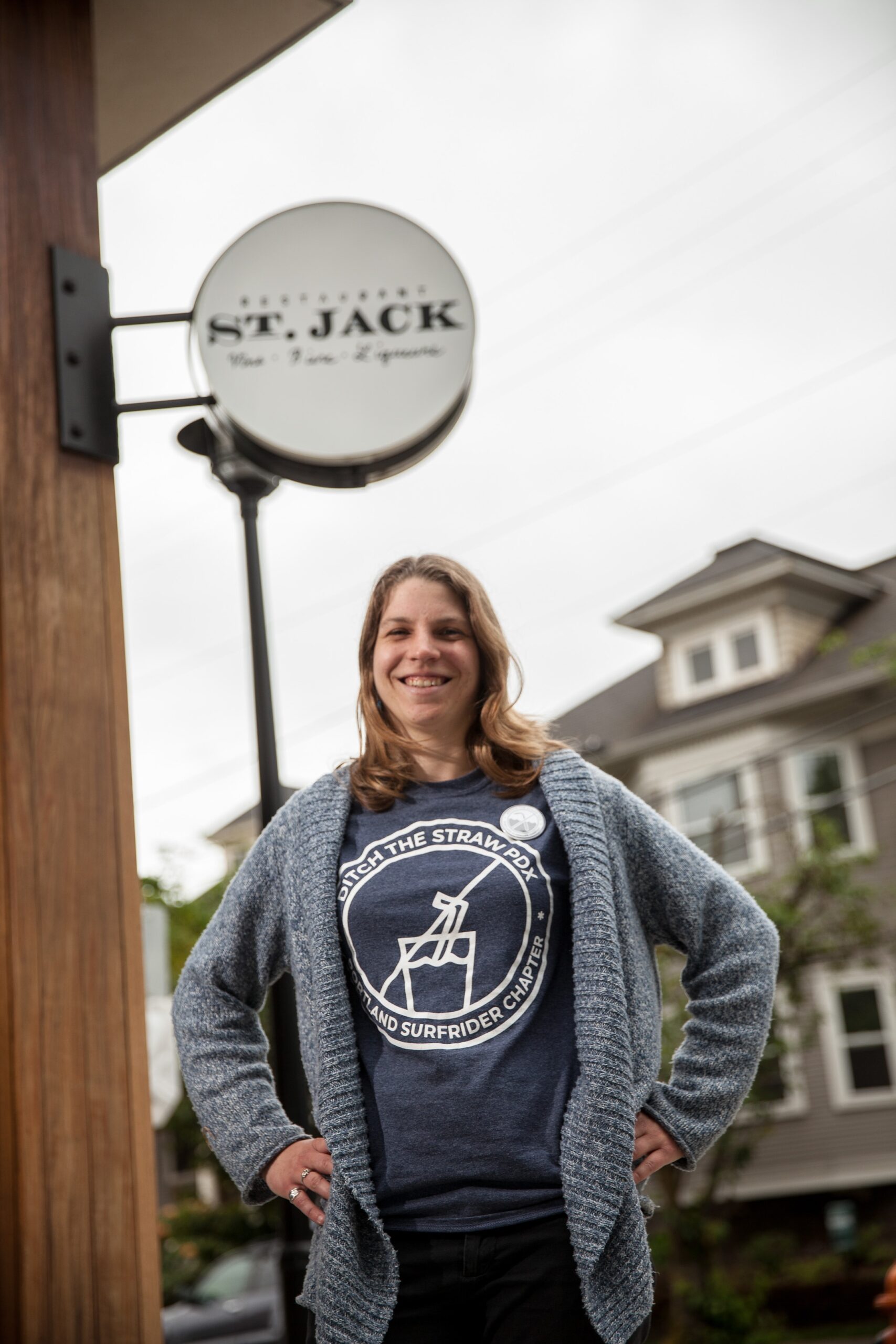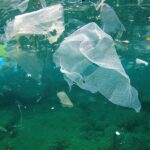A straw-less city is the eventual goal of the #DitchtheStrawPDX campaign, launched by Surfrider’s Portland Chapter.
America uses hundreds of millions of straws every day, used once and discarded but on our planet for generations to come. Fashioned from lightweight material, plastic straws often blow out of garbage bins, are littered or improperly disposed of and eventually make their way into our rivers, and oceans.
Plastic straws are designed to last forever and remain in the ocean until physically removed. Sunlight and currents break them down into smaller particles called “microplastics,” which absorb toxins in the ocean in orders of magnitude greater than the surrounding water. These toxic microplastics are often ingested by marine life, which in turn absorb toxins and pass them up the food chain.
Plastic pollution in oceans goes beyond just straws—by 2050, it’s estimated that there will be more plastic in the ocean than fish (according to a study conducted on behalf of the World Economic Forum).
This growing environmental threat is the impetus behind the #DitchtheStrawPDX campaign, launched in August 2017 by the Portland Chapter of the Surfrider Foundation. Instrumental in the city-wide ban on plastic bags, the Portland Surfrider Chapter is highlighting plastic straws as the next step in reducing single-use plastics altogether.
“People use plastic straws every day and throw them away. But the reality is—there is no away,” says Nancy Nordman, #DitchtheStrawPDX’s Campaign Coordinator. “Straws aren’t the only thing polluting the ocean, but (eliminating them) is a valuable action we can do immediately.”
 PHOTO | ZAK NOYLE
PHOTO | ZAK NOYLE
Consisting of volunteers, the Surfrider Portland Chapter has taken a grassroots and business-first approach to executing the #DitchTheStrawPDX campaign and, in turn, has received widespread local support.
One restaurant making a significant impact is St. Jack, in Northwest Portland. After hearing about the issue, St. Jack switched to a “straw upon request” policy that very day. Drinks are served without straws; if the customer asks, he or she receives a metal straw. While General Manager Katherine Berman anticipated possible backlash, that hasn’t been the case.
“Our customers are actually happier when we tell them about what we’re doing,” she says. “People will patronize places that align with their values.” By serving reusable straws, St. Jack has also saved money. Another bonus: Since the switch, not one metal straw has been stolen.
St. Jack recently partnered with Portland restaurants Costania, Coquine, and Aviary to host an ongoing dinner series, with proceeds going directly to the #DitchTheStrawPDX campaign. “We can rewrite policy, but the damage we do to the planet is not something we can repair,” says Berman. “Anything we can do to offset this is crucial. And I’m glad to know I played even a tiny part in that.”
Other businesses have followed suit. Though the campaign is barely seven months old, more than 100 local restaurants, bars, and businesses have pledged to change straw policies, donate to the campaign, or volunteer time in various clean-up activities. “Businesses are filling out our online interest form nearly every day,” says Nordman. Notable participants include Pok Pok, Bamboo Sushi, and Spirit of ’77 (among many others).
Even the mayor’s office has pledged support. “Local restaurants and venues are setting the pace when it comes to reducing marine pollution from plastic straws,” reads a statement from Mayor Wheeler. “I appreciate their work on this issue, and I will soon announce a plan to reduce harmful waste from single-use plastics.”

One major issue the campaign has faced, though, is the general understanding of disposing of compostable items. For one, Portland’s commercial composting program applies only to food. Other materials, even ones labeled “compostable” or “biodegradable”, still end up in the trash or the environment. A report by Surfrider Foundation and three other partnering organizations titled Better Alternatives Now 2.0 compares material breakdowns between paper straws and other “environmentally friendly” alternatives, identifying paper as the only material which breaks down completely in the marine environment.
Restaurants can help by switching to reusable metal straws or paper straws on request only. Other companies, such as Adidas, have pitched in by no longer offering single-use plastic straws in its cafeterias. Businesses can donate to the chapter, participate in community clean-ups, or attend upcoming events, such as the Surfrider Portland Chapter’s July 29th soiree fundraiser at Holocene.
Individuals can make an immediate impact, too. “When frequenting restaurants, ask for a drink without a straw,” says Nordman. “Compliment restaurants with a ‘straws upon request’ policy and offer support for what they’re doing.” Surfrider also encourages supporters to attend chapter meetings, which are listed on its website.
“So far, businesses and individuals have really stepped up to the plate,” says Nordman. “Portland’s people are the heart and soul of this campaign. We applaud all the restaurants and individuals who have taken action.”
Get Involved
The Surfrider Foundation will host a fundraising event on July 29th at Holocene and invites participating businesses to attend. Stay updated of upcoming events, learn more about the campaign, and discover ways to support #DitchtheStrawPDX by visiting the Surfrider Portland Chapter’s website, Portland.Surfrider.org, on Instagram @SurfriderPortland, or visit Surfrider.org.
Brand stories are paid content articles that allow Oregon Business advertisers to share news about their organizations and engage with readers on business and public policy issues. The stories are produced in house by the Oregon Business marketing department. For more information, contact associate publisher Courtney Kutzman.




